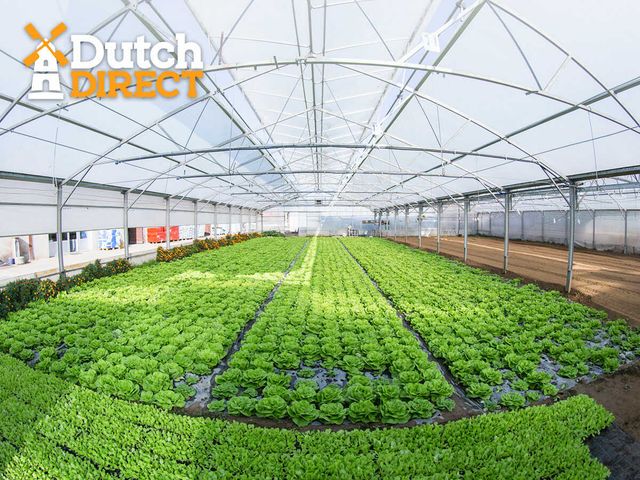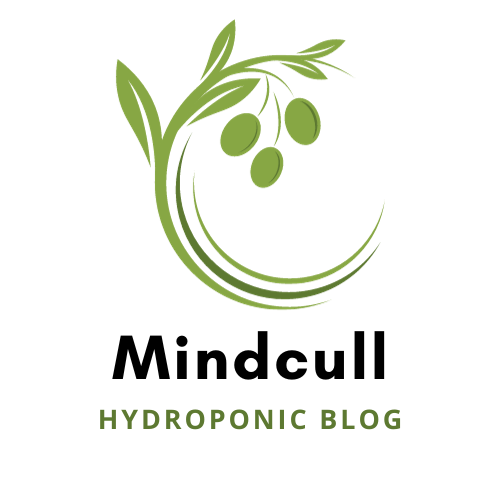Growing Beyond: Scaling Up with Commercial Hydroponics
Are you curious about Commercial Hydroponics? Well, get ready to dive into the fascinating world of growing plants without soil! Commercial hydroponics is a method of cultivation that uses nutrient-rich water to nourish plants and produce high-quality crops. It’s like gardening, but with a modern twist!
In commercial hydroponics, plants are grown in a controlled environment, such as a greenhouse or indoor facility. This allows growers to have complete control over factors like temperature, humidity, and lighting, creating optimal conditions for plant growth. By providing plants with the perfect balance of water, nutrients, and oxygen, hydroponics enables them to flourish and produce bountiful harvests.
So, why choose commercial hydroponics? Well, it offers numerous advantages! Not only does it maximize crop yields by providing plants with their exact nutritional needs, but it also saves water compared to traditional soil-based farming. In addition, hydroponics eliminates the need for pesticides and herbicides, making it an eco-friendly and sustainable way to cultivate crops. Plus, since hydroponics can be practiced anywhere, it opens up opportunities for urban farming and year-round production.
Now that you have a taste of what commercial hydroponics is all about, get ready to explore this exciting and innovative form of agriculture. From the science behind it to the different systems used, we’ll cover it all. So, strap on your gardening gloves and let’s dive into the world of commercial hydroponics together!

Commercial Hydroponics: Revolutionizing the Agriculture Industry
Commercial hydroponics is a modern agricultural practice that has gained significant popularity in recent years. This innovative method of growing plants without soil offers numerous benefits, including increased yields, efficient use of resources, and environmentally-friendly practices. In this article, we will delve into the world of commercial hydroponics, exploring its principles, applications, and advantages. Whether you are an aspiring entrepreneur or a curious enthusiast, join us as we uncover the fascinating world of commercial hydroponics.
The Principles of Commercial Hydroponics
Commercial hydroponics operates on the principle of growing plants in nutrient-rich water solutions, without the use of soil. Instead of relying on the natural soil ecosystem, this method provides all the necessary nutrients directly to the plant roots, allowing for faster growth and higher yields. The water solutions are typically enriched with essential nutrients, ensuring optimal plant nutrition. This allows growers to control and manipulate various environmental factors, such as pH levels and nutrient concentrations, to create the perfect growing conditions for different types of plants.
The Advantages of Commercial Hydroponics
Commercial hydroponics offers a range of advantages over traditional soil-based farming practices. Firstly, it allows for year-round crop production, regardless of environmental conditions, making it an ideal solution for regions with harsh climates or limited arable land. By eliminating the need for soil, hydroponics also minimizes the risk of soil-borne diseases and pests, reducing the need for harmful pesticides and herbicides. Additionally, this method uses significantly less water than conventional farming, making it a more sustainable option in regions experiencing water scarcity.
Furthermore, commercial hydroponics maximizes resource efficiency by minimizing water and nutrient waste. The closed-loop system allows for the recycling and reuse of water and nutrients, reducing environmental impact and operational costs. Additionally, the controlled growing conditions facilitate higher yields, leading to increased profitability for growers. The precise control over plant nutrition and environmental factors also results in healthier and more nutritious produce, making commercial hydroponics a preferred choice for health-conscious consumers.
Applications of Commercial Hydroponics
Commercial hydroponics has found applications in various sectors of the agriculture industry. In large-scale operations, hydroponics is commonly used for the cultivation of high-value crops, such as lettuce, herbs, and strawberries. The controlled environment allows growers to produce consistent, high-quality produce, meeting the demands of both consumers and retailers. Hydroponics is also gaining ground in urban agriculture, where limited space and access to arable land are prevalent challenges. Vertical farming systems, utilizing hydroponics, enable the production of fresh, locally-grown produce in urban areas.
Additionally, commercial hydroponics offers compelling solutions for research institutions and educational settings. Its precise control over plant nutrition and growth factors allows for controlled experiments and studies on plant biology, optimizing crop cultivation techniques, and exploring the potential of new plant varieties. Lastly, hydroponics has also gained traction in the cannabis industry, where growers seek to optimize yield, quality, and consistency of their products.
Hydroponic Systems: Exploring the Different Types
When it comes to commercial hydroponics, various systems are employed, each with its own set of advantages and considerations. Let’s dive deeper into the different types of hydroponic systems and their applicability in commercial settings.
Nutrient Film Technique (NFT)
Deep Water Culture (DWC)
Drip Irrigation System
Vertical Farming
Aeroponics
Ebb and Flow System
Wick System
Best Practices for Commercial Hydroponics
When venturing into commercial hydroponics, it is essential to follow certain best practices to ensure success and maximize productivity. Here are some key tips for implementing commercial hydroponics effectively:
1. Start Small and Expand
2. Choose the Right Crops
3. Monitor and Maintain Ideal Environmental Conditions
4. Implement a Comprehensive Nutrient Management Plan
5. Invest in Quality Equipment and Supplies
6. Train and Educate Your Staff
7. Continuously Innovate and Stay Updated with Industry Trends
The Future of Commercial Hydroponics
As we move towards a more sustainable and resource-efficient future, commercial hydroponics is poised to play a crucial role in meeting the world’s growing demand for fresh produce. With ongoing advancements in technology, research, and agronomic practices, commercial hydroponics will continue to evolve and revolutionize the agriculture industry. By embracing this innovative growing method, we can ensure a more resilient and environmentally-friendly approach to food production.
Key Takeaways: Commercial Hydroponics
- Hydroponics is a method of growing plants without soil.
- Commercial hydroponics allows for efficient and high-yield crop production.
- It provides better control over plant nutrition and eliminates the need for pesticides.
- Hydroponics systems can be tailored to different types of crops and growing conditions.
- Commercial hydroponics is gaining popularity due to its potential for sustainable farming.
Frequently Asked Questions
Commercial hydroponics is a method of growing plants without soil, using nutrient-rich water solutions instead. It has gained popularity due to its efficiency and ability to produce high yields in a controlled environment. Here are some commonly asked questions about commercial hydroponics:
1. How does commercial hydroponics work?
In commercial hydroponics, plants are grown in a controlled environment where the nutrients are delivered directly to the roots through a water-based solution. This method eliminates the need for soil and allows plants to grow faster and produce more yield. The roots are typically supported by an inert medium like rockwool or perlite, providing stability while allowing the water and nutrients to flow freely.
Commercial hydroponics systems often use a variety of techniques such as nutrient film technique (NFT), deep water culture (DWC), or drip irrigation to deliver the ideal balance of water and nutrients to the plants. Advanced technologies like pH and EC monitoring systems ensure optimal conditions for growth, resulting in healthier and more productive plants.
2. What are the advantages of commercial hydroponics?
Commercial hydroponics offers several benefits compared to traditional soil-based farming. First, it uses significantly less water since the water is recirculated in a closed system, reducing water waste. Second, it allows for year-round cultivation, regardless of climate, as the controlled environment provides optimal growing conditions. Third, hydroponics eliminates the need for pesticides and herbicides, leading to healthier and more sustainable crops. Additionally, hydroponic systems can be set up vertically, making efficient use of space and increasing the overall yield per square foot.
Furthermore, commercial hydroponics enables growers to have better control over the growth process, including nutrient delivery, light levels, temperature, and humidity. This level of precision improves plant health and growth rates, resulting in higher quality produce. Lastly, hydroponics reduces the risk of soil-borne diseases and pests, as the plants are not in contact with soil and are grown in a sterile environment.
3. What types of crops can be grown using commercial hydroponics?
Commercial hydroponics allows for the cultivation of a wide range of crops, including leafy greens like lettuce, spinach, and kale, herbs like basil and cilantro, vine crops like tomatoes and cucumbers, and even fruits like strawberries. With the right system and nutrient management, almost any plant can be grown hydroponically. The controlled environment ensures optimal conditions for growth, resulting in healthy plants and high-quality produce.
In addition to traditional crops, commercial hydroponics also offers opportunities for specialty crops like microgreens and edible flowers, which have gained popularity in the culinary industry. Furthermore, hydroponics enables growers to experiment with rare or out-of-season crops, expanding the variety of produce available in the market.
4. What are the startup costs involved in commercial hydroponics?
The startup costs for commercial hydroponics can vary depending on the scale and complexity of the system. Factors such as the size of the operation, the type of crops being grown, and the level of automation required all contribute to the overall costs. Generally, setting up a commercial hydroponics farm involves expenses for infrastructure, equipment (such as grow lights, pumps, and nutrient delivery systems), growing mediums, seeds or seedlings, and nutrient solutions.
While the initial investment may be higher compared to traditional farming, commercial hydroponics offers the potential for higher yields and faster crop cycles, which can result in a quicker return on investment. It’s essential to conduct thorough research, create a detailed business plan, and consider factors like ongoing operational costs and market demand when estimating the startup costs for a commercial hydroponics venture.
5. Are there any disadvantages or challenges of commercial hydroponics?
While commercial hydroponics offers numerous advantages, there are also some challenges to consider. One of the main concerns is the reliance on technology and infrastructure. Hydroponic systems require consistent access to electricity, water, and nutrients to maintain optimal growing conditions. Power outages or equipment failures can have a significant impact on the crops if not addressed promptly.
Another challenge is the initial learning curve and the need for expertise in hydroponic farming techniques. Proper knowledge of nutrient management, pH balancing, water quality, and pest control is crucial for successful commercial hydroponics operations. It may require additional training or hiring experienced staff to ensure the efficient operation of the system.
Lastly, the upfront investment costs and ongoing operational expenses can be a barrier to entry for some growers. However, as the demand for fresh, locally grown produce continues to rise, commercial hydroponics can offer a viable long-term solution for farmers seeking sustainable and high-yield farming methods.

FULLY AUTOMATED HYDROPONIC FARM | Modern Hydroponic Farming | Amazing Agriculture Technology
Summary
Commercial hydroponics is a cool way to grow plants indoors without soil. It uses water and nutrients to help plants grow big and healthy. This method saves water and land, and can produce a lot of fruits and vegetables. Farmers can control the environment and grow food all year long. Hydroponics is good for our planet and can provide fresh and nutritious food for people everywhere. Give it a try and see what plants you can grow hydroponically!

